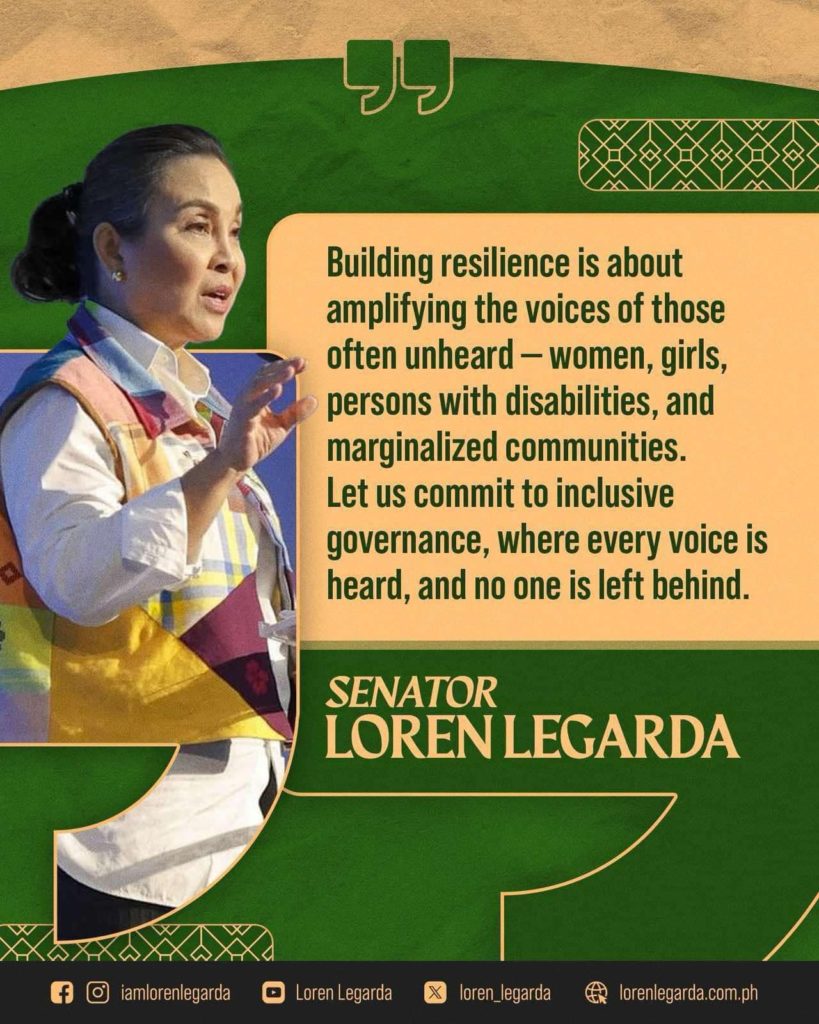Senator Loren Legarda today emphasized the importance of gender-responsive disaster risk governance, recognizing the role of women as leaders and agents of change.
“These girls already have a vision for a future where they can thrive. Our role is to ensure they have the resources, education, and leadership opportunities to turn that vision into reality,” Legarda said during her speech at the 2024 Asia-Pacific Ministerial Conference on Disaster Risk Reduction (APMCDRR).

“Beyond inclusion, women and girls—and all marginalized groups—must harness their creativity and ingenuity to lead sustainable solutions to our most pressing development challenges,” she added.
Legarda lamented that disasters disproportionately affect women, girls, persons with disabilities (PWDs), marginalized communities, especially in areas such as the Asia-Pacific region.
Citing data from the World Health Organization, PWDs are up to four times more likely to die during disasters.
The four-term senator also told the attendees that their respective countries must ensure that early warning systems, evacuation procedures, and recovery plans must be accessible to everybody, removing barriers that prevent full participation.
Local communities, who are on the frontlines of disaster response, must be empowered through education, resources, and capacity-building.
“Building resilience is about amplifying the voices of those often
unheard—women, girls, persons with disabilities, and marginalized communities,” remarked the lawmaker.
“Let us commit to inclusive governance, where every voice is heard, and no one is left behind.”
In her years of public service, Legarda has made sure to pass laws that enshrine gender equality.
Among them are the Magna Carta for Women and the Philippine Disaster Risk Reduction and Management Act, which ensure protection and empowerment of women in the context of disasters.
Gender representation at the highest level of decision making in the Climate Change Commission—the lead policymaking body on climate change—is ensured as it is required to have at least one woman commissioner. (30)




